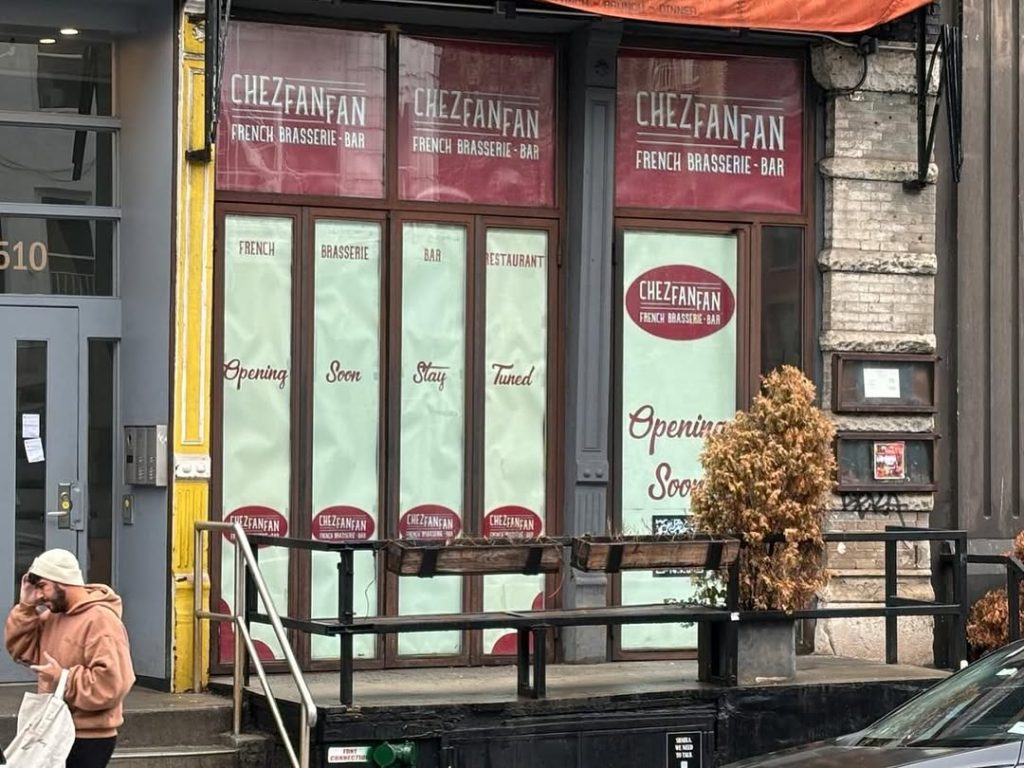French Chef Dies Before NYC Dream Comes True.
François-Tanguy Olivon, a 34-year-old French chef, tragically died just weeks before he and his wife were set to begin a new chapter with their children in New York City. The family had invested over $210,000 to open their dream restaurant in SoHo — a dream that ended in heartbreak, financial loss, and unanswered questions.

510 Broome St. in SoHo.
A Frantic Call and a Mysterious Death
While vacationing in the south of France on February 22, François made a desperate phone call to his wife, Manon, at 1 a.m.
“He was shouting at me for help, to come and get him right away,” she said.
According to reports, François was alone, appeared intoxicated, and claimed he had been attacked. A passerby later saw him wearing a “completely torn” T-shirt. CCTV footage captured him falling from a bridge in Bayonne. His body was found 12 days later in the Adour River.
Life Savings Lost in SoHo Lease
François and Manon had recently sold their restaurant in Brittany, France, and moved forward with plans to open a new brasserie called Chez Fanfan in New York City. The couple placed a $166,000 deposit and paid $47,500 for rent for January and February at a storefront on 510 Broome St. in SoHo.
On March 1, Manon informed landlord Robert Moskowitz, of Only Properties LLC, of François’s death and asked for compassion.
“Today, I am not writing to a landlord — I am writing to a man,” she wrote. “If you cannot return the full amount, then I beg you to at least return one month’s rent.”
Francois-Tanguy Olivon and his wife Manon Olivon
Legal Threats and Public Outcry
Instead of a refund, Manon received a letter from the landlord’s attorney warning she would be held responsible for the full 10-year lease — amounting to $3 million — unless she signed a surrender agreement. She complied, but the family’s entire savings were gone.
“I don’t have anything. I don’t have a house anymore… I no longer have a car… or a job,” she told The Post.
Others involved in the restaurant’s planning showed kindness. A liquor license attorney waived his fee, stating, “You don’t collect money from a widow whose husband just died.”
A Mother's Plea for Help
With her husband gone and her dreams shattered, Manon is now raising Ethan (8) and Rose (4) on her own. She created a GoFundMe campaign to cover expenses and regain some stability.
“I have to start from scratch — without my husband, without our dream, and with two young children depending on me.”
She wrote that François was a loving father and kindhearted man. “We were a close-knit family, full of love and dreams… Now, Rose, Ethan and I must find a way forward without him.”
A New Layer: The Ethical Side of Commercial Leases
Beyond the heartbreak and headlines, this story opens a larger conversation around the ethics of commercial leasing in high-demand urban markets. While the landlord’s actions in this case were technically legal, many have questioned whether they were morally defensible — especially in light of a widow’s sudden loss and financial devastation.
In cities like New York, commercial leases are typically ironclad, often spanning 5 to 10 years with hefty security deposits. These contracts are designed to protect landlords in competitive markets, but they rarely include clauses that account for death, medical emergencies, or catastrophic life changes. When tragedy strikes, tenants can find themselves trapped in obligations that no longer make sense — emotionally, practically, or financially.
This case also highlights a stark power imbalance: individuals or families investing everything into a dream are often up against corporate property holders who see leases purely through the lens of profit and liability. It raises the question: Should there be more humane standards in commercial real estate?
Legal experts note that while rare, “compassion clauses” — which allow for lease renegotiation under extraordinary circumstances — could provide more flexibility without undermining the property market. Others suggest that real estate ethics boards or tenant advocacy organizations could develop best-practice guidelines to handle these situations with more care.
In a world still recovering from pandemic-era business closures and personal loss, stories like Manon’s reveal an urgent need to rethink how humanity and business can coexist more thoughtfully — especially when the stakes are as high as someone’s entire life savings, livelihood, and future.
What Happens Next?
Manon Olivon’s GoFundMe remains active, and the story continues to circulate across international media. As public attention grows, many are calling for reforms in commercial lease practices. Whether legal changes or financial help will follow remains to be seen.





















